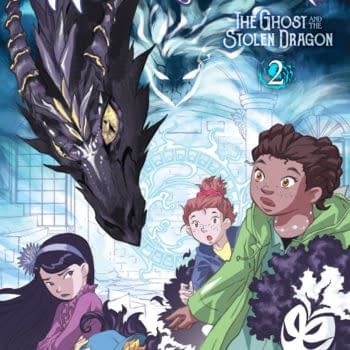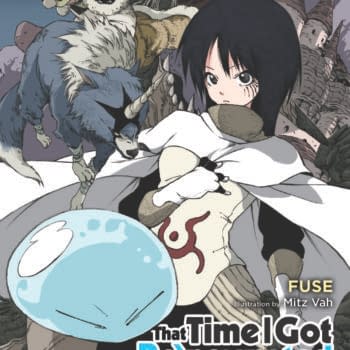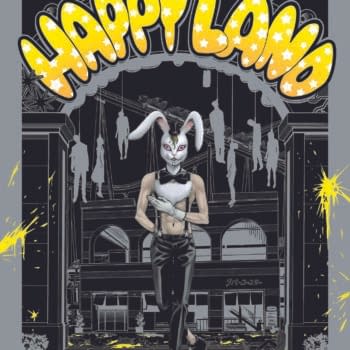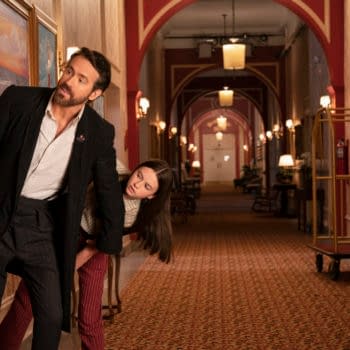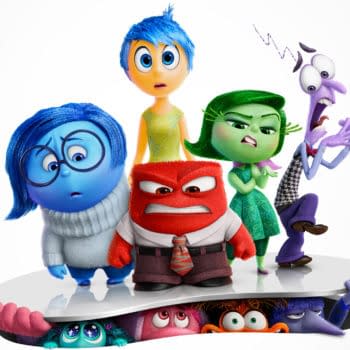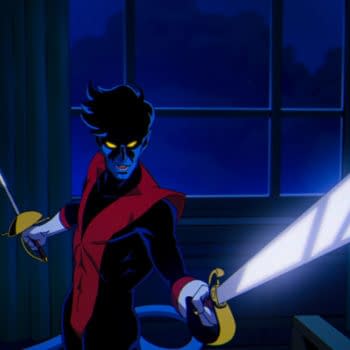Posted in: Movies, Opinion, streaming, TV, TV | Tagged: amptp, netflix, one piece, SAG-AFTRA, The Sandman, wednesday, wga
WGA Strike Ends: Writers See Big Gains in New Agreement – Here's How
Now that the writers' strike is over, here is a very simple summary of the biggest gains the WGA won in the new agreement with the AMPTP.
The WGA (Writer's Guild of America) Strike is officially over as of midnight PST on Wednesday, September 27th. After five months, which were at least four months longer than it needed to be, the WGA has reached an agreement with the AMPTP (Association of Motion Picture and Television Producers) that pretty much gave the writers what they were asking for. Unlike the end of the 2008 WGA strike, where the membership voting for agreements they weren't happy with but felt it necessary in order to get back to work.
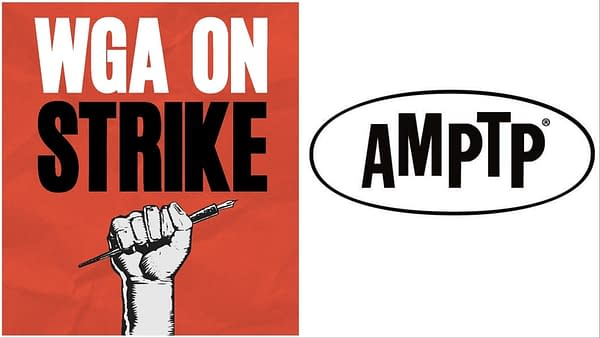
The terms address the increasingly lowballing of TV staff writers' pay, especially when they work for streamers. It's not right when writers who worked on current hit shows on Netflix still have to drive Ubers to make rent on their studio apartments, or writers with ten years' experience suddenly have to worry about losing their family health insurance or feeding their kids. Screenwriting takes a lot of work, and to relegate the job to a part-time paying job for those that aren't in the 1% of A-listers earning millions threatens the entire profession and the creation of future shows and movies. You can read a summary of the agreements here, otherwise, here's a tl;dr version, the simplest rundown for the biggest and best gains from the agreement that are new. If you want to see the details and actual figures and percentages, you can read the full memorandum, the summary, and the bullet points.
WGA Gets Protections Over Use of AI
When the strike began, the big hype was over the prospect of the studios using AI to write first drafts of new screenplays and then hiring union members to rewrite or polish them up. This posed two problems: first, any first draft script written by an AI would almost certainly be plagiarized from other existing scripts; second, it robs writers of credit for the first draft and then also the full pay rate. The studio gets to claim authorship of the script rather than any human.
Since then, the AI issue over screenwriting has turned out to be far less of a five-alarm fire than initially thought, and the agreement reached has put control of AI back in the hands of writers rather than the studios or producers. AI will not be recognized as the authors because they're not alive, and it will be writers who would have the option of using AI to help them write their original first drafts before they refine them, provided all parties agree. The issue of AI has been, surprisingly, easily resolved.
If anything, what studios have used AI to do to actors is even worse and more disgusting in its exploitation: forcing day-players and extras to have their faces, bodies, and voices scanned for the studios to use in any way they want in perpetuity with no more compensation than one day's pay, and certainly no residuals for using their likenesses in unknown future productions. That is a big issue that the actors' union SAG-AFTRA will need to demand a strict agreement on.
WGA Members Get Protection and Increased Pay in Writers' Rooms
One of the worst practices the streamers like Netflix introduced in the last few years is "minirooms", that is smaller writers' rooms to write the entire eight-episode of a series and for a short period of time. After that, the writers are cut loose with the meager pay and forced to scramble for the next job. With the new agreement, there will be 125% pay for mini rooms, writer staffing for streaming production, variety shows residual enhancements, and minimum staffing. That's still not that much when mini rooms don't work for very long and on seasons as short as eight episodes rather than the more thirteen or twenty-two episodes, but at least it's a livable wage for the writers while they work on a show without having to take second jobs. Staff writers will also be paid for the episodes they are credited with writing on top of the weekly wage of being on staff. The weekly pay rate has also gotten increased.
Showrunners now also have an agreement on the minimum number of writers in the writers' room rather than be forced to have a small number to crunch through a show. There is also now a guaranteed minimum period of employment starting at ten weeks. Under the new agreement, there would also be a set number of writers who can also serve as producers. On TV series, writer of the episode being filmed should get to go on set and help rewrite and answer questions to make the filming of the show go smoother. In recent years, writers were not getting a chance to go on set to learn how a show because the writers' room was disbanded after the episodes were written. The new agreement makes corrections to that oversight. It also takes steps to protect the mid- and lower level writers, who are the most vulnerable and under-representated. Promoting writers and giving them the experience to make a show is training them to be future showrunners, which is a complex and difficult job beyond just "head writer" and vital for the creation and production of future shows.
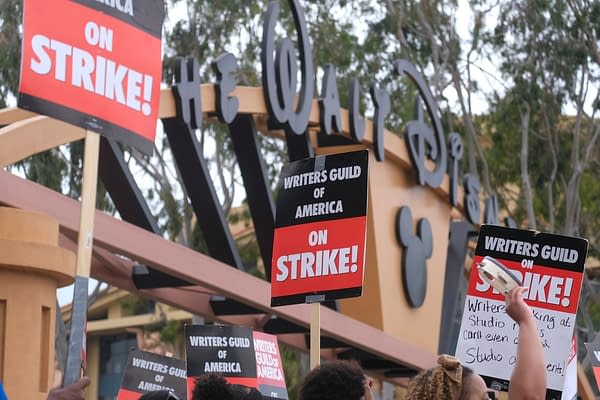
Streamers will Pay Residuals for the First Time
Residuals have been vital for writers for decades because they can tide them over during lean months when there's less work. A highly successful series on Netflix like The Sandman, Wednesday, Stranger Things, or One Piece can be streamed by millions of viewers both in the US and globally, but the writers have not been paid any residual bonuses, only upfront wages. Now for the first time, streaming services will pay residuals based on viewership numbers (in traditional broadcast network terms, this would be "ratings"), even residuals from foreign subscription numbers. The streaming services have also promised transparency in disclosing their streaming numbers, where they had been notoriously secretive before. All this is possibly the biggest gain in the new agreements. It's possible – no, likely – that Hollywood's infamous "creative" accounting will be used to hide numbers and earnings to avoid paying out, but for now, the agreement is in good faith. This one is huge.
Of course, bad shows will still be made. That's a separate issue from fair labour terms, which this agreement with the WGA has gotten. Now SAG-AFTRA can use it as a template to get their agreements and protections when the AMPTP finally agrees to negotiate with them so the industry can get back to work.
(Thanks to Christos Gage, writer of Film & Televsion and comics, for some help in clarifying some details.)



